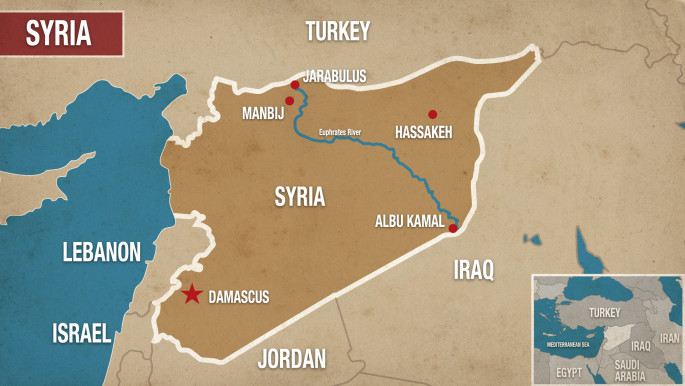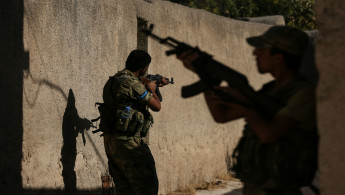Syrian Kurds move east of Euphrates as tensions rise
US-backed Kurdish forces in northern Syria have moved east of the Euphrates River, a US defence official said Monday, in a move that could avert a confrontation with Turkey, another US ally.
Turkey had warned it would carry out more strikes against the Kurdish People's Protection Units (YPG), which it labels as a terrorist group, near the key Syrian border town of Jarabulus unless they moved to the east, raising alarm in Washington.
Ankara said it killed 25 Kurdish "terrorists" in strikes on YPG positions on Sunday, a day after a Turkish soldier died in a rocket attack.
The Pentagon called the clashes "unacceptable" and urged an immediate de-escalation.
Euphrates Shield
Turkey's operation in northern Syria aims to push IS away from its border and the YPG back across the Euphrates to prevent it joining up a region east of the river already under its control with a Kurdish-held area to the west.
The YPG is allied with US-led coalition fighting the Islamic State group in Syria, and have made significant gains against the militants.
Over the past day or so, YPG fighters have moved east, as per Turkish demands, according to a US official quoted by AFP.
 |
|
| [Click to enlarge] |
"All the YPG [forces] are on the east of the Euphrates," the official who spoke on condition of anonymity said.
The official said that some Kurdish fighters who were not part of the YPG might have remained on the western side of the river.
Pentagon press secretary Peter Cook also said the YPG move east had "largely occurred."
Frictions
The situation in northern Syria is yet another complication in the country's already tangled civil war.
The US-led coalition has been backing the YPG with training and equipment to fight IS, while at the same time the United States has also supported "Vetted Syrian Opposition" groups fighting with the Turks in northern Syria.
Ankara fears the emergence of an autonomous Kurdish region in Syria would bolster Kurdish rebels across the border in southeast Turkey.
The UK-based Syrian Observatory for Human Rights said at least 40 civilians were killed in Turkish shelling and airstrikes on pro-Kurdish positions in northern Syria on Sunday.
Ankara strongly denies killing any civilians.
President Recep Tayyip Erdogan said in a statement the offensive would continue until "the threat of Daesh and YPG/PKK is over." Daesh is an acronym for IS.





 Follow the Middle East's top stories in English at The New Arab on Google News
Follow the Middle East's top stories in English at The New Arab on Google News


